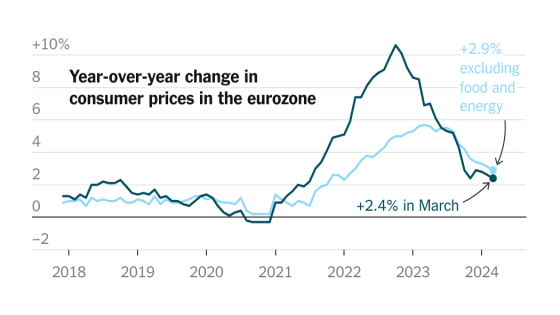A version of this story appeared in CNN Business’ Nightcap newsletter. To get it in your inbox, sign up for free, here.
We all know, instinctively, to be skeptical every time a big company markets itself as more than what it is: A business hungry for our hard-earned cash.
Think about it. Didn’t we all groan when Kendell Jenner, in an ad, appeared to bring about peace by giving a cop a Pepsi? Of course. Didn’t we pan empty Pride gestures as “rainbow capitalism”? We did. (And in doing so, gave rise to a generation of hilarious “That’s why, for this pride month, I’ve partnered with” memes.
But more damaging than the cringe of a tone-deaf tweet about diversity is when companies give up on the performance altogether.
See here: Over the last few months, an array of big-name brands, including Lowe’s, Ford, John Deere, Harley-Davidson and Tractor Supply, have announced they are scaling back their diversity, equity and inclusion efforts. This week, Molson Coors, a longtime sponsor of Pride events and partner to LGBTQ+ nonprofits, joined the list.
In a memo, the CEO of Molson Coors told employees the company was “rolling out the next steps of our culture journey,” and moving away from certain DEI efforts toward a “broader view.”
Part of that journey will include ditching a popular LGBTQ+ equality metric from the Human Rights Campaign, a gay rights advocacy and a prominent target of the far-right.
While Molson Coors emphasized in the memo that its decision would not diminish its commitments to employees and customers, the timing of the announcement suggests the company may have been under the same pressure as the brands that came before it in the DEI backlash.
As soon as the Coors memo was leaked publicly Wednesday, a prolific anti-DEI agitator named Robby Starbuck claimed his threat to Coors executives to “expose their woke policies” prompted the company to preemptively announce changes. (As my colleague Nathaniel Meyesohn has written, Starbuck was the driving force behind DEI reversals among brands like Harley-Davidson, Tractor Supply Co. and John Deere.)
A Molson Coors representative declined to comment beyond the memo.
The DEI backlash has been brewing for almost as long as DEI has been in vogue — roughly since the summer of 2020, when the murder of George Floyd set off a national reckoning over racism in America.
The far right quickly seized on DEI as a kind of corporate affirmative action (it’s not), and the backlash gained momentum, particularly after Bud Light last year became a boycott target over its one-off partnership with a trans influencer on social media. Fallout from that public-relations debacle helped knock Bud Light to the No. 3 beer brand in the United States after years at the top.
“In a sense, we had a DEI bubble,” says Cait Lamberton, professor of marketing at the University of Pennsylvania’s Wharton School of Business. “I find it ironic that [companies] don’t seem to recognize that they are just as activist by stepping back from DEI as they would be by participating in it.”
And to be fair to big corporations: Look, we get it — you have shareholders to tend to and employees to pay, and if your sales slip because your customers aren’t happy, for any reason, well, you’ve got to fix that. Coors Light may have looked at its rival getting pummeled by right-wing pundits and feared being the next target.
But marketing experts warn this kind of waffling is bad for the brand.
“Retreating is not a good look. The conviction of a CEO, and their discipline in sticking to declared business strategies, is the measure against which they’re ultimately going to be judged,” Tom Sebok, managing partner at The New England Consulting Group, told me. “And if you start to waiver as a CEO, all you wind up doing is diminishing investor confidence in your conviction as a leader.”
But the retreat from DEI may be more of a rebranding than an actual change in policy.
Molson Coors, in its memo, repeatedly leaned on the language of inclusivity to underscore its desire to foster a culture “where every one of our employees knows they are welcome at our bar.”
Noting another exerpt from Coors’ memo, Sebok noted: “‘A broader view in which all our employees know they’re welcome’ could very well have been the original foundational statement for their DEI initiatives.”
For more CNN news and newsletters create an account at CNN.com
Source Agencies



